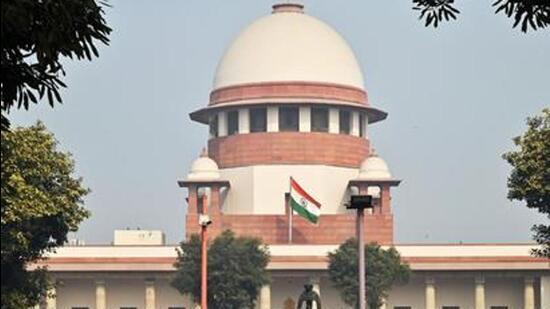
Calling Someone ‘Miyan-Tiyan’ & ‘Pakistani’ Not an Offence: Supreme Court
In a recent judgment, the Supreme Court of India has ruled that calling someone “Miyan-Tiyan” and “Pakistani” is in poor taste, but it does not constitute a criminal offence. The case in question involved an 80-year-old man who was accused of hurling abuses at an Urdu translator in Jharkhand. The translator had filed a complaint against the elderly man, leading to a case being registered against him.
However, the Supreme Court ultimately closed the case, stating that the remarks made by the 80-year-old man did not amount to hurting the religious sentiments of the translator. The court’s decision has sparked a heated debate about the use of certain terms and their impact on religious and cultural sensitivities.
The term “Miyan-Tiyan” is a colloquialism commonly used in some parts of India, particularly in the Hindi-speaking states, to refer to someone from a particular ethnic or religious group. The term is often used in a derogatory manner and is considered offensive by many. Similarly, the term “Pakistani” is sometimes used as a pejorative to refer to someone from Pakistan or to imply that they are of Pakistani origin.
The use of such terms can be hurtful and offensive, particularly in a country like India where religious and cultural diversity is a hallmark. In recent years, there has been an increasing trend of using such terms to provoke and offend others. This trend has led to a rise in communal tensions and religious conflicts, with some incidents even resulting in violence and loss of life.
However, the Supreme Court’s decision in this case highlights the need to balance freedom of speech with the need to avoid hurting religious sentiments. While the court acknowledged that the terms used by the 80-year-old man were in poor taste, it did not find them to constitute a criminal offence.
This decision is significant because it sets a precedent for future cases involving the use of offensive language and terms. It also highlights the need for individuals to be more mindful of their language and its impact on others. In a country like India where religious and cultural diversity is a hallmark, it is essential that individuals recognize the importance of respecting each other’s beliefs and values.
The court’s decision has also sparked a debate about the use of certain terms and their impact on religious and cultural sensitivities. Some have argued that the use of such terms is a form of hate speech and should be criminalized. Others have argued that the terms are a form of cultural expression and should be protected as a matter of free speech.
The debate surrounding the use of such terms is complex and multifaceted. On one hand, the use of such terms can be hurtful and offensive, particularly in a country like India where religious and cultural diversity is a hallmark. On the other hand, the use of such terms can also be seen as a form of cultural expression and a way to assert one’s identity and belonging.
Ultimately, the key to resolving this debate is to find a balance between freedom of speech and the need to avoid hurting religious sentiments. This can be achieved by promoting education and awareness about the importance of respecting each other’s beliefs and values. It can also be achieved by promoting dialogue and understanding between different religious and cultural groups.
In conclusion, the Supreme Court’s decision in this case highlights the need to balance freedom of speech with the need to avoid hurting religious sentiments. While the use of certain terms may be in poor taste, it does not constitute a criminal offence. The case serves as a reminder of the importance of respecting each other’s beliefs and values in a country like India where religious and cultural diversity is a hallmark.






